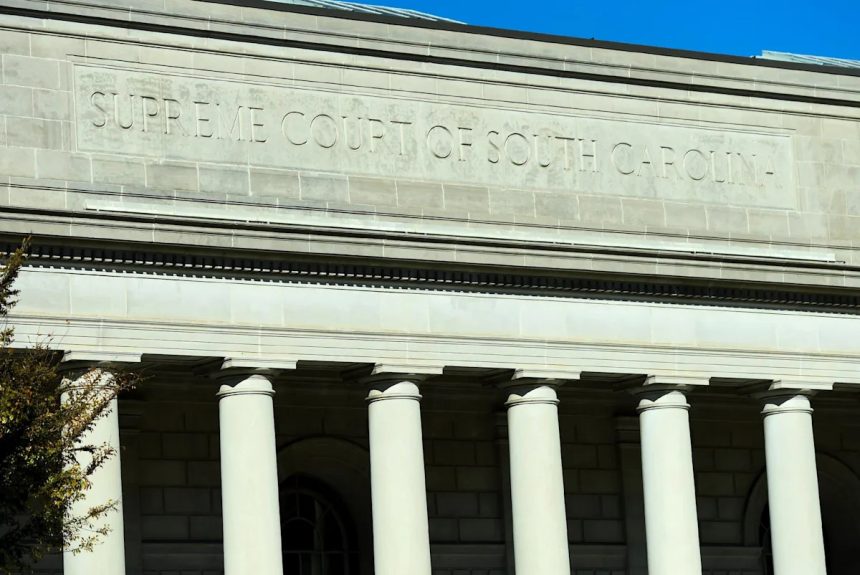The South Carolina Supreme Court has thrown out the legal case over claims that the 2022 congressional map was drawn to give Republicans an advantage in the 1st Congressional District.
The League of Women Voters of South Carolina (LWVSC) brought the case, accusing the state of redrawing the line between the 1st Congressional District and the 6th Congressional District to give Republican candidates an advantage. The group argued that the map violates several parts of South Carolina’s constitution, including the free and open elections clause and the equal protections clause.
More: Oral arguments start in South Carolina Supreme Court case over 2022 congressional map
The South Carolina State Supreme Court started oral arguments in the lawsuit on June 25, with lawyers from the American Civil Liberties Union of South Carolina representing LWVSC.
In a 22-page decision, the state’s highest court decided to dismiss the case. The court did not deny that the 2022 congressional map was redrawn in a partisan way, but it instead stated that there are no constitutional provisions or statutes that prohibit partisan gerrymandering in South Carolina’s congressional redistricting.
“There are no judicially discernible or manageable standards or satisfactory criteria to adjudicate partisan gerrymandering claims,” the justices wrote. “Therefore, we hold partisan gerrymandering claims present a nonjusticiable political question in South Carolina, and we deny the League’s claim for relief.”
South Carolina Supreme Court building in Columbia, S.C.
Lynn Teague, the vice president of the LWVSC, said in a statement that the group is disappointed that the state judiciary has “held itself unable to protect the foundations of representative democracy in our state.”
“Partisan gerrymandering is an attack on our most fundamental right as citizens, the right to vote. But the League of Women Voters of South Carolina will not stop fighting for fair redistricting,” Teague said. “If a constitutional amendment is needed to protect voters, the people of South Carolina must demand that amendment.”
State House Speaker Rep. Murrell Smith, (R-Sumter), defended the map on social media.
“South Carolina leads by example. Working together, the House and Senate delivered fair maps after the 2020 census – no do-overs needed,” Smith said.
State Senate President Thomas Alexander (R-Oconee) also issued a statement on the decision saying he is pleased with the court’s ruling.
“As I said just last year following a favorable ruling from the US Supreme Court, our maps were meticulously crafted to comply with statutory and constitutional requirements, and today’s decision affirmed the hard work of South Carolina Senators,” Alexander said. “After years of litigation – only for the federal and state supreme courts to tell us what we knew all along – I am grateful to see this matter finally resolved.”
Previous legal dispute over 2022 congressional map
A federal three-judge panel ruled in a 2023 lawsuit ― South Carolina State Conference of the NAACP v. Alexander ― that South Carolina’s legislature racially gerrymandered the districts by moving 30,000 Black Charleston County residents out of 1st Congressional District and into the 6th Congressional District.

FILE PHOTO: The U.S. Supreme Court is pictured in Washington, U.S., October 8, 2024.
That case moved to the U.S. Supreme Court after an appeal from the state. The U.S. Supreme Court ruled in May 2024 that the case constituted partisan gerrymandering, not racial gerrymandering. It threw out the case based on a previous ruling that said federal courts should not consider partisan gerrymandering cases.
Bella Carpentier covers the South Carolina legislature, state and Greenville County politics. Contact her at bcarpentier@gannett.com.
This article originally appeared on Greenville News: South Carolina Supreme Court dismisses SC League of Women Voters’ case








